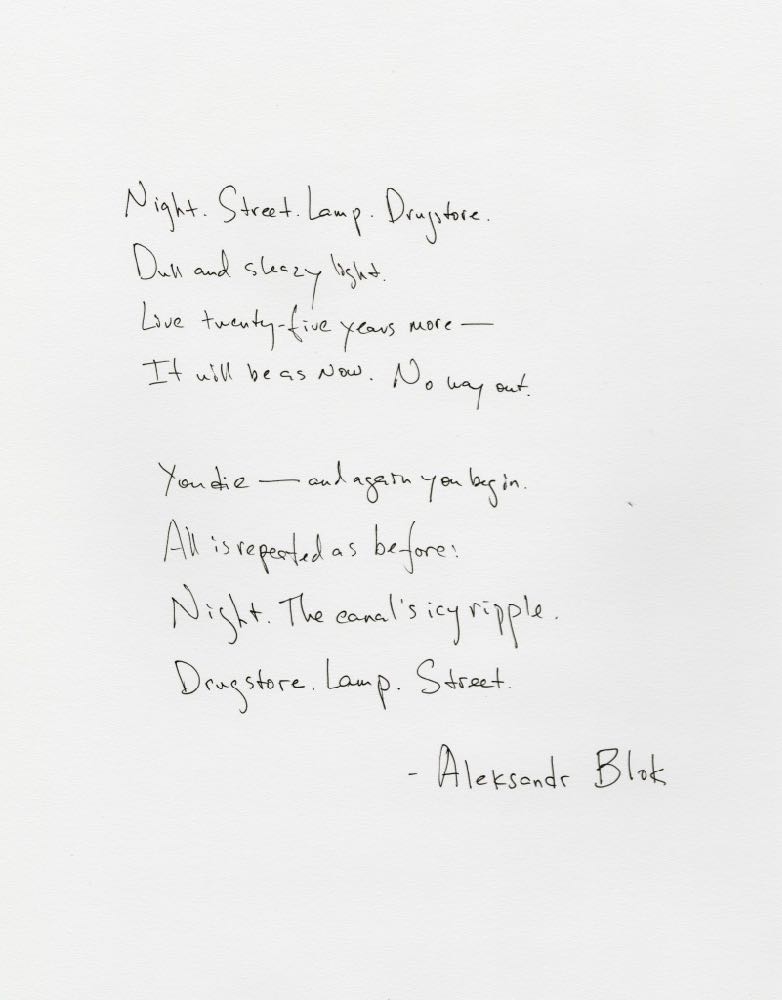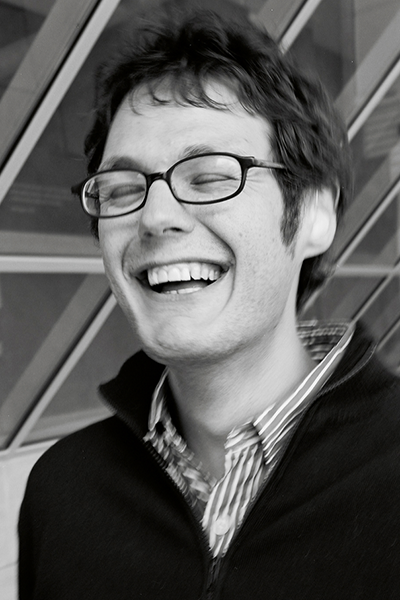Aleksandr Blok’s little poem wasn’t the first one I fell in love with, but it was the first poem I read that showed me that poetry isn’t there merely to relay information. The poem is not about the event. It is the event. This poem’s repetitions and syntax enact what it says.
These words by Vi Khi Nao describe the effect: “When used wisely & precisely, the device of repetition has the ability to move text in and out of the future, & from the past into a fluid present. It has the ability to make language time travel through different registers. Repetition can move the text telekinetically.”
Or, per Yanis Ritsos: “A word made fresh by repetition.”

![Aleksandr Blok's "[Noch. Ulitsa. Fonar. Upteka.]" as handwritten by Ilya Kaminsky](https://training.poems.com/wp-content/uploads/2019/05/Kaminsky_Ilya_002-1.jpg)



